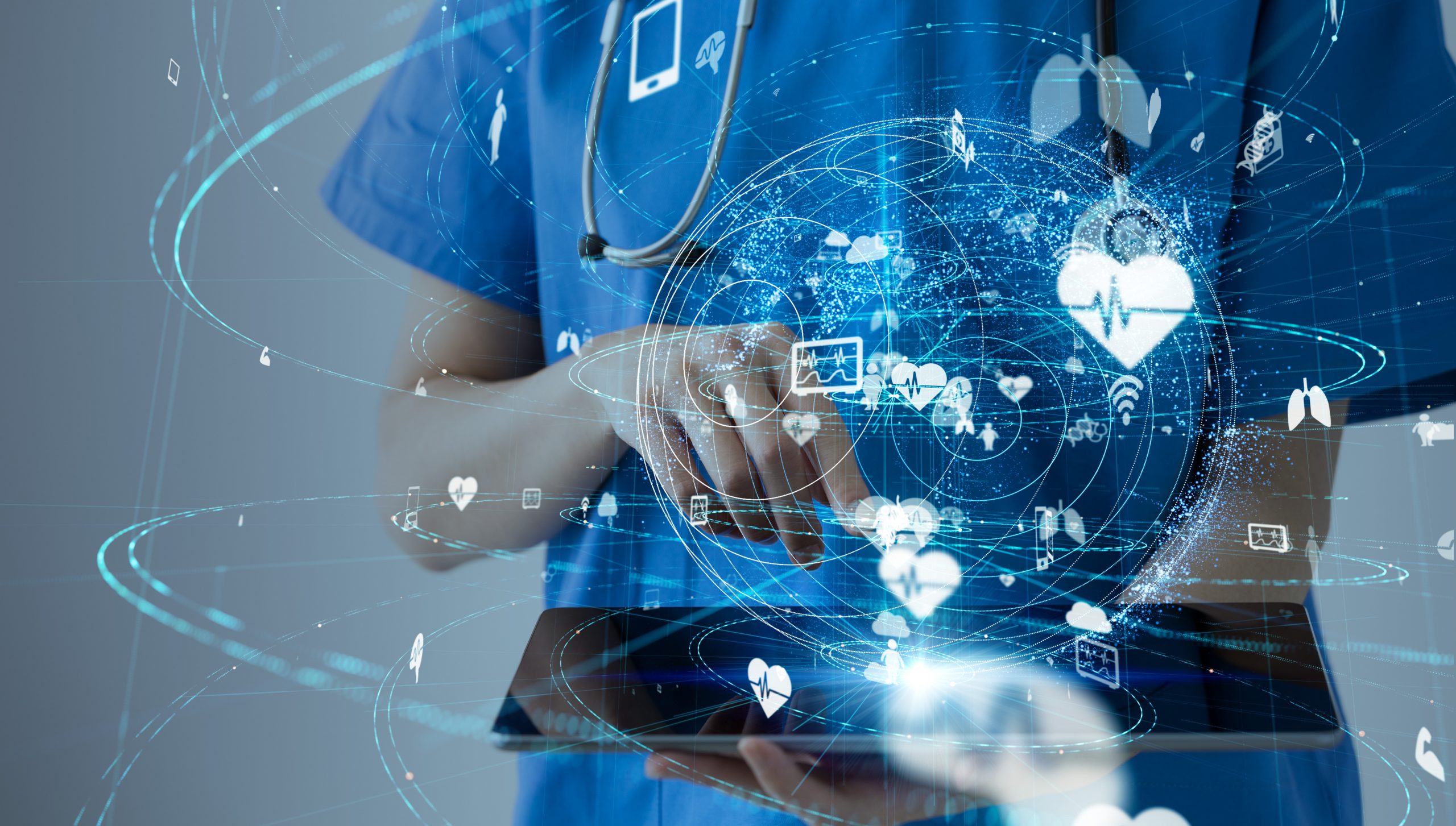Introduction:
In today’s rapidly evolving world, the healthcare industry is undergoing a profound transformation, driven by the rapid advancements in health technology. From revolutionary medical devices to cutting-edge digital health solutions, the intersection of healthcare and technology is paving the way for a future where personalized, efficient, and accessible care becomes the norm.
In this comprehensive guide, we’ll explore the exciting world of health technology, delving into the key innovations, their impact on the healthcare landscape, and how you can leverage these advancements to enhance your own well-being or that of your loved ones. Whether you’re a healthcare professional, a technology enthusiast, or simply someone seeking to stay informed about the latest developments in the industry, this article will equip you with the knowledge and insights to navigate the rapidly evolving world of health technology.
The Rise of Wearable Health Technology
Fitness Trackers and Activity Monitors
The rise of wearable health technology has revolutionized the way we monitor and manage our personal health. Fitness trackers and activity monitors, such as Fitbit, Apple Watch, and Garmin devices, have become ubiquitous in the daily lives of health-conscious individuals. These devices offer a wealth of features, including real-time tracking of steps, heart rate, sleep patterns, and calorie expenditure, providing users with valuable insights into their physical activity and overall well-being.
Advancements in Smartwatches and Wearable Sensors
Beyond basic fitness tracking, the evolution of smartwatches and wearable sensors has introduced even more advanced health monitoring capabilities. Devices like the Apple Watch and Samsung Galaxy Watch can now detect irregular heartbeats, monitor blood oxygen levels, and even perform electrocardiogram (ECG) measurements, all from the convenience of the user’s wrist. These cutting-edge wearables are paving the way for early detection and proactive management of various health conditions.
The Impact of Wearable Health Technology on Personal Well-being
The widespread adoption of wearable health technology has had a profound impact on personal well-being. By providing users with real-time data and personalized insights, these devices empower individuals to take a more active role in their health and fitness. From motivating users to increase their physical activity to helping them better manage chronic conditions, wearable tech has become an indispensable tool in the quest for a healthier lifestyle.
Telehealth and Remote Patient Monitoring
The Rise of Telemedicine and Virtual Consultations
The COVID-19 pandemic has accelerated the adoption of telehealth services, allowing patients to access medical care from the comfort of their own homes. Telemedicine platforms, such as Zoom, Doxy.me, and Teladoc, enable users to connect with healthcare providers for virtual consultations, prescription refills, and even mental health support. This convenient and accessible approach to healthcare has proven especially valuable for individuals with mobility challenges, those living in remote areas, or those seeking to minimize the risk of exposure to illnesses.
Remote Patient Monitoring and Chronic Disease Management
In addition to virtual consultations, health technology has also enabled the development of remote patient monitoring (RPM) solutions. These technologies, which include wearable devices, smart home sensors, and mobile apps, allow healthcare providers to continuously track and monitor the health data of patients, particularly those with chronic conditions such as diabetes, heart disease, or chronic obstructive pulmonary disease (COPD). By providing real-time insights and early warning signs, RPM can help healthcare teams intervene proactively, improving patient outcomes and reducing the burden on the healthcare system.
The Transformative Impact of Telehealth and Remote Monitoring
The integration of telehealth and remote patient monitoring has the potential to revolutionize the healthcare industry. These technologies can improve access to care, especially for underserved or rural communities, reduce healthcare costs, and empower patients to take a more active role in managing their own health. Additionally, the data collected through these digital health solutions can provide valuable insights for healthcare professionals, enabling more personalized and data-driven treatment approaches.
Advancements in Medical Devices and Diagnostics
Innovative Medical Devices for Improved Patient Outcomes
The healthcare industry has witnessed a surge of innovative medical devices that are transforming the way we diagnose, monitor, and treat various health conditions. From advanced prosthetics and implantable sensors to AI-powered diagnostic tools, these cutting-edge devices are enhancing patient outcomes and improving the overall quality of care.
One notable example is the development of smart insulin pumps and continuous glucose monitoring (CGM) systems, which have revolutionized the management of diabetes. These devices, combined with mobile apps and predictive algorithms, can automatically adjust insulin delivery, provide real-time insights, and help patients maintain better glycemic control.
Emerging Technologies in Medical Diagnostics
Health technology has also made significant strides in the field of medical diagnostics. Innovations such as portable ultrasound devices, at-home genetic testing kits, and AI-assisted imaging analysis are enabling earlier and more accurate disease detection. These advancements can lead to timely interventions, improved treatment outcomes, and ultimately, better overall healthcare for patients.
The Impact of Innovative Medical Devices and Diagnostics
The integration of cutting-edge medical devices and diagnostic technologies has the potential to transform healthcare on a global scale. By enhancing disease management, improving diagnostic accuracy, and enabling personalized treatment approaches, these innovations can lead to better patient outcomes, reduced healthcare costs, and a more efficient and effective healthcare system.
The Rise of Digital Therapeutics and Mobile Health Apps
Digital Therapeutics: Delivering Evidence-Based Interventions
Digital therapeutics is a rapidly growing field within health technology, which involves the use of software-based interventions to prevent, manage, or treat various medical conditions. These evidence-based digital solutions, often delivered through mobile apps or web-based platforms, can provide personalized coaching, behavioral therapy, and medication management support, empowering patients to take a more active role in their healthcare.
The Proliferation of Mobile Health (mHealth) Apps
Alongside the rise of digital therapeutics, the healthcare industry has witnessed a proliferation of mobile health (mHealth) apps. These applications, designed for smartphones and tablets, offer a wide range of features, from fitness and nutrition tracking to symptom monitoring and medication reminders. By leveraging the ubiquity of mobile devices, mHealth apps have the potential to improve patient engagement, enhance self-care, and provide valuable data for healthcare professionals.
The Impact of Digital Therapeutics and mHealth Apps on Healthcare
The integration of digital therapeutics and mobile health apps into the healthcare ecosystem can lead to several transformative outcomes. These technologies can improve chronic disease management, promote preventive care, and empower patients to take a more proactive approach to their health. Additionally, the data generated through these digital health solutions can provide valuable insights for healthcare providers, enabling more personalized and data-driven decision-making.
The Future of Health Technology: Emerging Trends and Innovations
Advancements in Artificial Intelligence and Machine Learning
The healthcare industry is poised to witness a significant impact from the integration of artificial intelligence (AI) and machine learning (ML) technologies. These advanced computational tools can analyze vast amounts of medical data, identify patterns, and make data-driven predictions that can enhance disease diagnosis, treatment planning, and patient outcomes.
Blockchain Technology in Healthcare
Blockchain technology is also making its mark on the healthcare industry, offering the potential to secure and streamline the exchange of sensitive medical data, improve supply chain management, and enable more efficient and transparent healthcare transactions.
The Emergence of Virtual and Augmented Reality in Healthcare
Virtual reality (VR) and augmented reality (AR) technologies are also finding applications in healthcare, from immersive training for medical professionals to pain management and rehabilitation therapies for patients.
Conclusion:
The rapid advancements in health technology have ushered in a new era of healthcare, one that is more personalized, efficient, and accessible. By leveraging these innovative solutions, we can empower individuals to take a more active role in managing their well-being. While also enabling healthcare providers to deliver more effective and data-driven care. As we continue to explore the transformative power of health technology, the future of healthcare holds endless possibilities.




